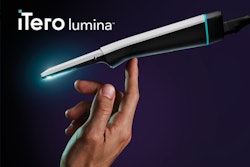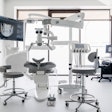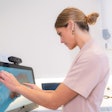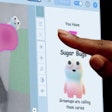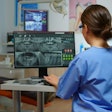Artificial intelligence (AI) for x-ray analysis and revenue cycle management (RCM) automation were the hot trends in dental service organizations (DSOs) in 2023, and adoption is expected to grow even more in 2024.
Plus, cloud-based software that enables the secure sharing of data across practices and providers is making life easier for clinicians, support staff, and DSO executives.
To find out how DSOs ranging in size from startups to groups with more than 75 locations are using technology solutions, we asked the following questions:
- What types of technology did you add to your practice in 2023?
- What types of technology are you exploring for 2024?
- What problem(s) would it solve?
Some of their answers have been lightly edited for length and clarity.
Dr. Ankoo Raina, chief dental officer of Jefferson Dental & Orthodontics (76 locations in Oklahoma and Texas)
 Dr. Ankoo Raina.
Dr. Ankoo Raina.
"We have embedded automation and AI in all aspects of the patient journey and have been particularly impressed by the new iTero Plus series, Overjet's artificial intelligence for x-ray analysis, and bot-supported insurance verification and automation of claims.
"The Align Oral Health Suite on the iTero Plus scanner integrates patient education tools into a single dashboard, enhancing chairside conversations and our patients’ understanding of their oral health conditions. It aligns seamlessly with Jefferson's wellness scanning protocol and reinforces the importance of comprehensive oral health assessments. We have also been impressed by the scanner’s Invisalign Outcome Simulator with IFV, which has shown a significant increase in patient engagement and treatment acceptance.
"In 2024, we anticipate the smooth incorporation of the iTero Plus Series across all of our locations and will continually improve our systems through the integration of AI and automation in revenue cycle management. This will alleviate many manual tasks, allowing our team to focus on what we excel at, which is patient care!"
Dr. Kalpesh Patel, founder and CEO of Active Dental (four locations in Texas)
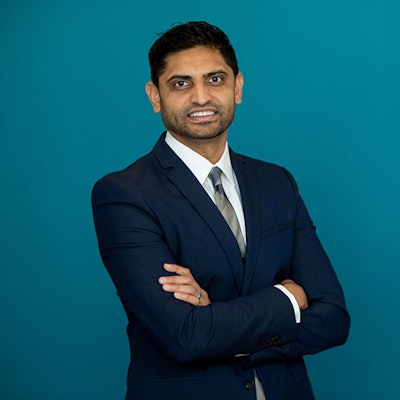 Dr. Kalpesh Patel.
Dr. Kalpesh Patel.
"We added iTero Element 5D+ scanners in 2023 and have been impressed by the ability to use this technology both as a patient education tool and as a teaching tool for our newer doctors.
"We’re a small DSO, and I can now have my clinical director access patient data virtually to help guide and coach our doctors better. We can access x-rays, the full digital exam, patient notes, and other data to conduct peer-to-peer patient reviews easily.
"In 2024, we’re adding 3D printers to make us more efficient with creating and delivering dental implants, night guards, crowns, and composite veneers. They will give us the ability to print out dental implant guides so we can combine them with a cone-beam computed tomography scan, plan out the implant placement, and deliver treatment faster. Guided implants make everything so easy and predictable.
"We anticipate that having the 3D scanners will help us increase patient compliance with night guards because we’ll be able to turn them around in just one day while the patients’ motivation to wear them remains high.
"With the way we’ve done veneers in the past, we scan, mock it up, send it to the lab, and get it back. Now, we can design veneers digitally on the iTero and can show the patient immediately what their teeth will look like. With the 3D scanners, we’ll be able to print temporary crowns or create composite veneers. We think that patients will be very excited because they’re getting results instantaneously."
Karla-Marie Santiago, senior director of practice optimization and growth at Oakpoint (44 locations in North Carolina, South Carolina and Washington, DC)
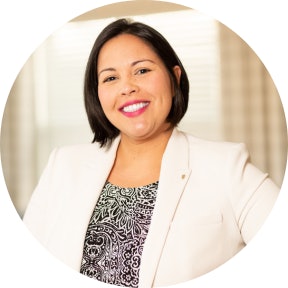 Karla-Marie Santiago.
Karla-Marie Santiago.
"Last year was one of innovation and growth for technology that uses AI to create efficiencies in a practice's clinical and nonclinical areas. We especially saw a spur of software specializing in automation and efficiency of tasks in the revenue cycle process. The software aims to optimize the RCM process by tracking claims in a centralized platform, following insurance adjustments and explanation of benefits, automating insurance verification, and helping maximize claim collection to increase cash flow.
"At Oakpoint, we have implemented two of the current products in the RCM market: InsideDesk and Zentist. These implementations have delivered significant results, including a reduction in accounts receivable and improved claim submission payouts.
"With InsideDesk, our claims management has improved, resulting in a decrease in accounts receivable (AR) days from 19 to 15 and a 90-day AR decrease of 5%.
'The payment and posting insights we have achieved through using Zentist have been instrumental in successfully changing TINs within our DSO structure,' shared Oakpoint’s senior director of integrations, Susanne Moyer.
"In 2024, we are committed to maintaining our position at the forefront of dental technology. Our leadership team will continue to harness the power of AI to leverage innovative solutions that enhance efficiency at the DSO and practice levels.
"Our priority is to adopt technology that allows us to track our practices' performance in a centralized place and allows for seamless visibility of multisite locations. We will focus on enhanced interoperability, ensuring smooth data exchange between different practice locations and departments to streamline communication and optimize coordination across our network.
"In addition, we will continue optimizing patient-facing technology that enhances the patient experience, like online payment functionality, at all of our locations to simplify the billing process. We will also refine our transition to digital intake forms to reduce paperwork and streamline patient registration, introduce two-way messaging to facilitate easy communication between patients and our clinical staff, and roll out easier access to third-party financing options. The ultimate goal is to have the necessary tools in place for our doctors and clinical staff to continue to provide the highest level of patient care."
Dr. Larry Moray, founder and CEO of MyOrthodontist North Carolina/Key Dental Management Solutions (14 locations in North Carolina)
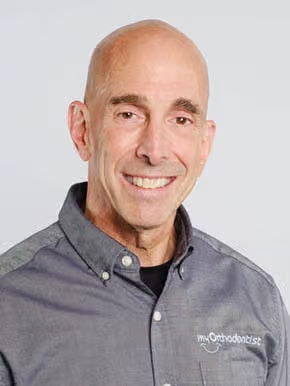 Dr. Larry Moray.
Dr. Larry Moray.
"In 2023, we saw the adoption of Spark clear aligners and Dental Monitoring for both traditional braces and clear aligners. Dental Monitoring has allowed us to follow patients remotely thereby decreasing the need for unnecessary office visits and alerting us to problems with broken brackets, elastic compliance, or stubborn teeth so that we can anticipate next steps ahead of patient visits.
"Additionally, the marriage of Spark and Dental Monitoring allows us to make clear aligner refinement scans and new aligners without requiring that the patient visit the office.
"In 2024, we will expand our use of and reliance on Dental Monitoring and Spark while incorporating the Pain Eraser, which is a game changer in orthodontic and dental care that delivers profound pain control without the need for topical or local anesthesia. As such, the discomfort of appliance placement, activation, and removal is ameliorated. The Pain Eraser is also effective in addressing discomfort from oral ulcers and simple surgical procedures such as simple extractions, gingivectomies, frenectomies and expose and bonds, all of which we perform in our clinics."
Brandon Halcott, co-founder of Seva Dental Team (a recently formed DSO acquiring its first offices in Michigan and Ohio)
"Technology’s place within dental offices has come a long way since we started our first DSO in 2014. With that dental group, we liked using cloud-based Denticon for our practice management software to make it easier to share patient data and information across our practices. As we embark on building Seva, we are looking for more ways we can utilize tech to serve patients at a high level and increase our operational efficiency.
"We’ll add solutions that utilize AI to help us deliver first-class care. One example of this is AI for x-ray analysis, such as VideaHealth, Overjet, and Pearl. They analyze large datasets to identify potential caries, bone loss, and other pathologies, and that would enable our team members to be even more proactive in providing optimal care.
"We are additionally looking to utilize a cloud-based practice management system again with an integrated imaging platform so we can create standard operating procedures to help drive efficiency within the organization. "
Note: To learn how dentists and DSO executives are evaluating cloud-based systems, check out “A Dentist’s Guide to Digital Imaging with AI,” by Planet DDS.
Beth Gaddis is the editor in chief at Planet DDS, a dental technology company specializing in cloud-based practice management systems, digital imaging, and dental marketing services. Previously, Gaddis was the marketing director for two large dental service organizations. Prior to entering the dental industry, Gaddis was a journalist for 16 years in a variety of roles, including as a TV news producer at the CBS affiliate in Boston. You can connect with Gaddis on LinkedIn.
The comments and observations expressed herein do not necessarily reflect the opinions of DrBicuspid.com, nor should they be construed as an endorsement or admonishment of any particular idea, vendor, or organization.







